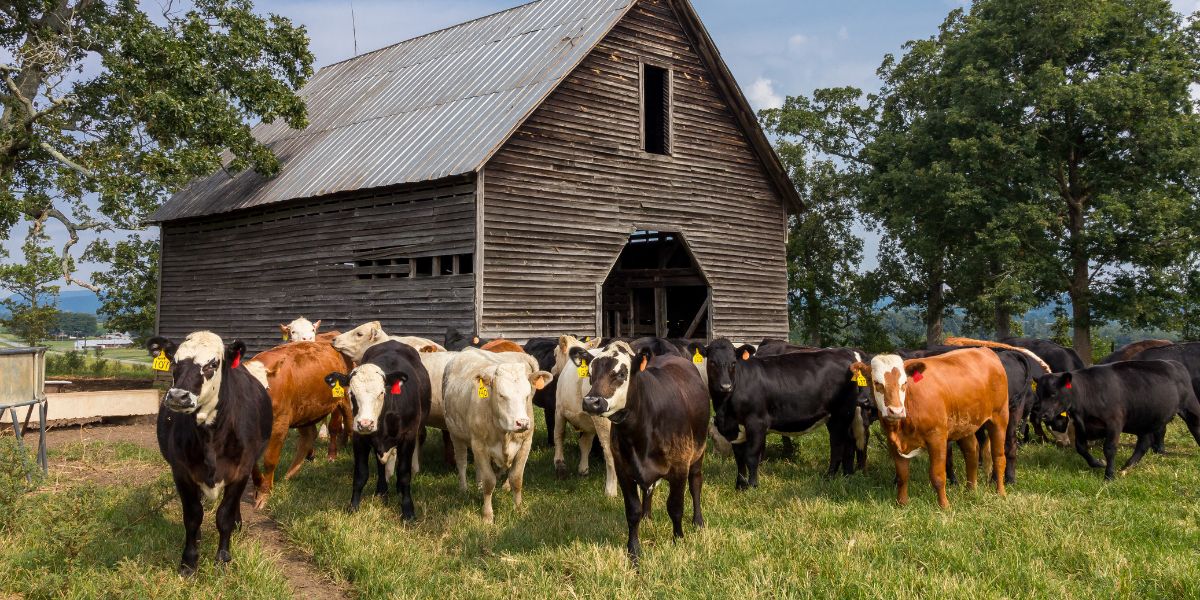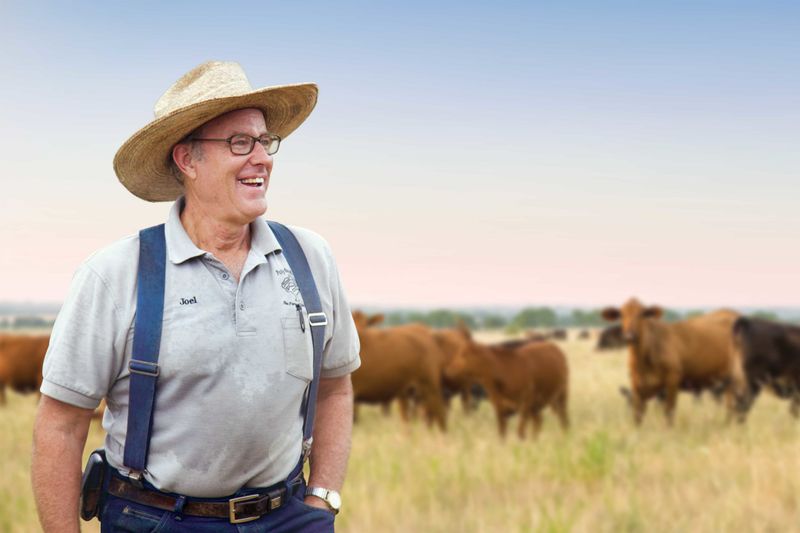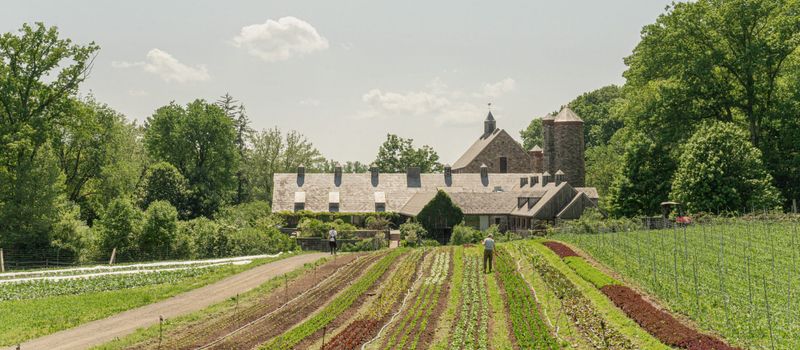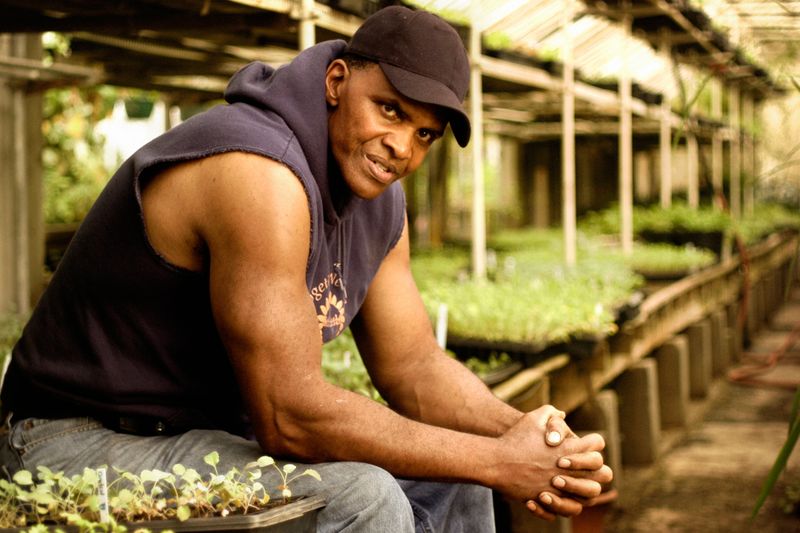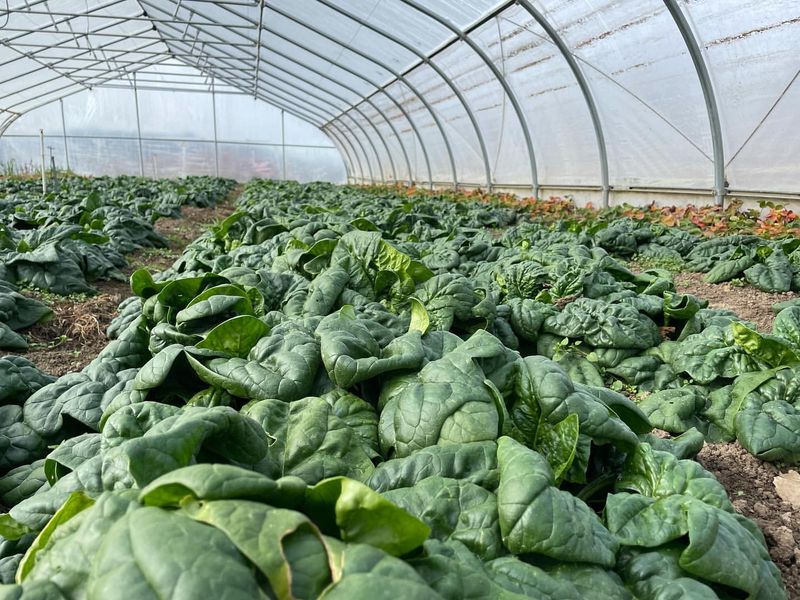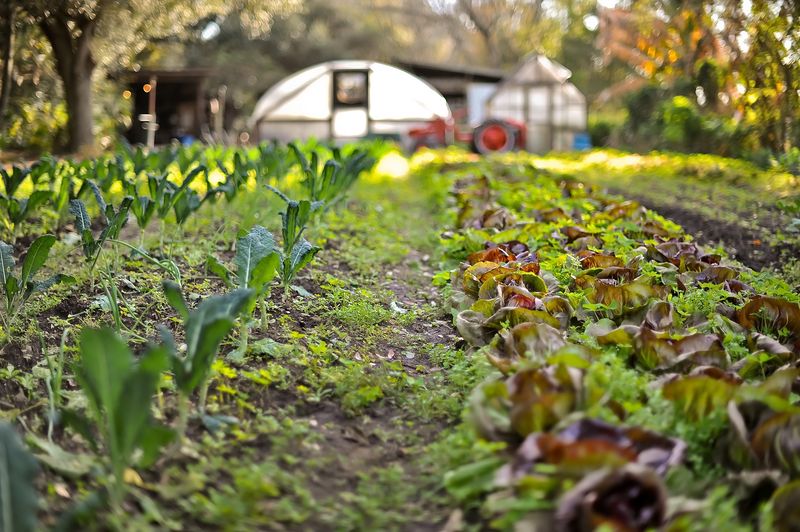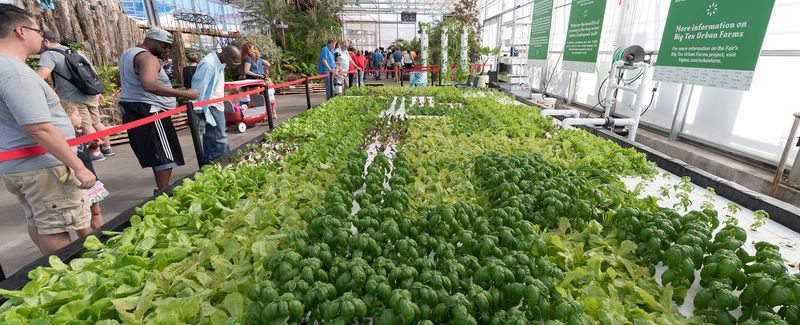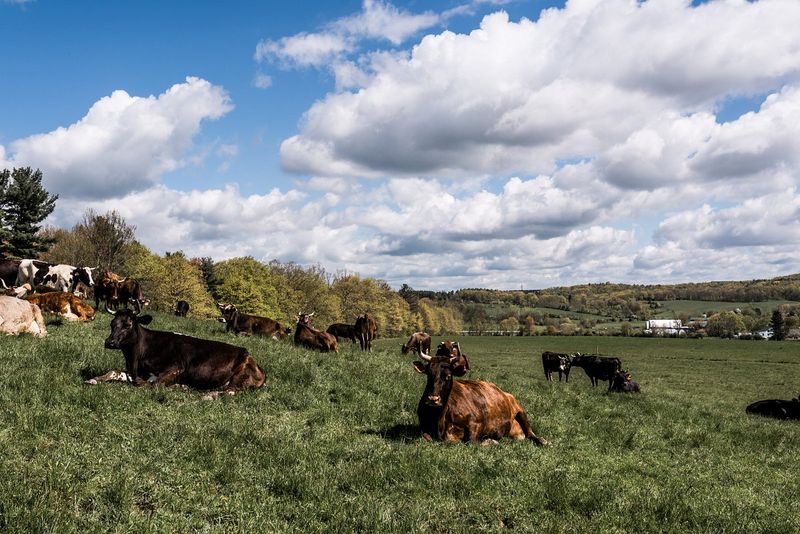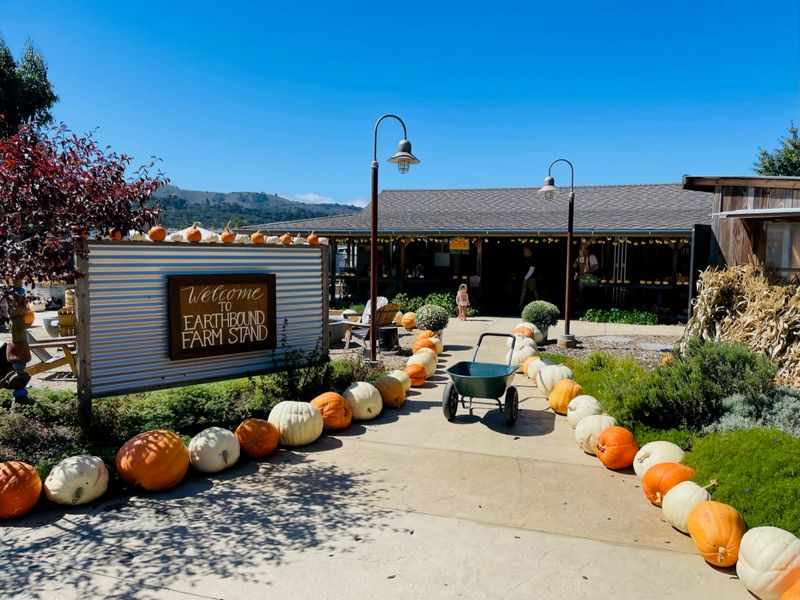Beneath the golden sun and amidst lush, verdant landscapes lie America’s agricultural gems, farms renowned not only for their bountiful yields but also for their groundbreaking sustainable practices.
These iconic estates paint a vibrant picture of harmony between productivity and preservation, showcasing how visionary farming can lead to a greener, healthier future for all.
1. Polyface Farm
Polyface Farm, located in Virginia’s Shenandoah Valley, is a beacon of sustainable farming. Founded by Joel Salatin, this family-owned farm practices rotational grazing.
Chickens, cows, and pigs roam freely, mimicking natural ecosystems. Salatin’s innovative techniques have inspired a generation of farmers looking to reduce environmental impact.
Visitors to Polyface can witness this harmony between agriculture and nature, offering insights into sustainable meat production.
His approach emphasizes transparency and community involvement, fostering an understanding of where our food originates. Polyface stands as a model of regenerative agriculture and local food systems.
2. Stone Barns Center for Food and Agriculture
Stone Barns Center for Food and Agriculture, nestled in New York, merges education with farming. This non-profit farm focuses on holistic and sustainable agriculture.
Through workshops and classes, they educate future farmers and the public about ecological farming methods. Their farm-to-table model supplies the renowned Blue Hill restaurant.
The center’s innovative practices in crop rotation and livestock management set a benchmark for sustainability. Visitors learn about the interconnectedness of food systems and the land.
Stone Barns is a leader in promoting awareness and practices for sustainable food production.
3. Harris Ranch
Harris Ranch, located in California’s Central Valley, is one of the largest beef producers in the western United States. Known for its sustainability efforts, the ranch employs water recycling and solar energy.
These practices minimize its environmental footprint while maintaining high production standards. Visitors often tour the ranch to learn about its eco-friendly operations and cattle care.
Their commitment to quality and sustainability has made Harris Ranch a key player in the beef industry. It serves as a model of integrating technology with traditional farming for a sustainable future.
4. Will Allen’s Growing Power Urban Farm
Growing Power, founded by Will Allen in Milwaukee, revolutionizes urban farming. Allen’s innovative techniques transform vacant lots into thriving green spaces.
The farm produces fresh produce and fish through aquaponics, an efficient system combining aquaculture and hydroponics. This farm empowers communities with fresh food access and education.
Allen’s work has inspired urban agriculture initiatives nationwide, promoting food security and sustainability. Growing Power exemplifies how urban environments can contribute to healthy food systems.
This farm underscores the importance of community involvement in food production.
5. Driftless Organics
In the heart of Wisconsin, Driftless Organics showcases sustainable vegetable farming. This family-run farm excels in producing organic vegetables and oils.
Their innovative crop rotation techniques and soil management preserve soil health and biodiversity. The farm emphasizes community-supported agriculture (CSA), connecting consumers directly with their food sources.
By prioritizing regenerative practices, Driftless Organics ensures long-term sustainability and high-quality produce. Their approach influences local food movements, promoting transparency and ecological balance.
Driftless Organics demonstrates the benefits of sustainable farming for both the environment and community.
6. Sweetwater Organic Community Farm
Sweetwater Organic Community Farm in Florida is a hub for organic urban agriculture. This community-led farm practices sustainable techniques to grow vegetables and herbs.
Through educational programs, they engage the community in organic farming and healthy eating. The farm hosts seasonal events, fostering community spirit and learning.
Sweetwater’s commitment to sustainability and education makes it a model for urban agricultural practices. It highlights the importance of community involvement in sustainable agriculture.
Through its initiatives, Sweetwater empowers individuals to participate in their food system actively.
7. Big Tex Urban Farms
Big Tex Urban Farms, located in Dallas, Texas, transforms unused urban spaces into productive agricultural sites. This innovative project is part of the State Fair of Texas, aiming to educate the public about urban farming.
The farm utilizes hydroponics to grow fresh produce, demonstrating efficient use of limited space and resources. It supplies fresh vegetables to local communities, addressing food deserts in urban areas.
Big Tex showcases how urban agriculture can contribute to food security and environmental sustainability. Its initiatives inspire other cities to adopt similar models, promoting urban resilience.
8. Hawthorne Valley Farm
Hawthorne Valley Farm in New York is a biodynamic farm, integrating farming with ecological and social responsibility. The farm produces dairy, vegetables, and fermented products using biodynamic principles.
These practices maintain soil health and biodiversity, providing nutritious food while preserving the environment. The farm hosts educational programs, connecting people with biodynamic agriculture through hands-on experiences.
Hawthorne Valley’s commitment to holistic farming practices influences sustainable agriculture significantly. It exemplifies how farms can thrive by balancing ecological stewardship with community engagement.
9. Earthbound Farm
Earthbound Farm, based in California, is a leader in organic farming. Founded in 1984, it has grown from a small garden to one of the largest organic produce suppliers in the country.
The farm is committed to sustainability, employing techniques like composting and natural pest control. These practices ensure the health of their crops and the environment.
Earthbound Farm’s dedication to organic principles sets industry standards for sustainability. It highlights the importance of organic farming in promoting health and environmental conservation. As a pioneer, Earthbound continues to innovate and inspire.
